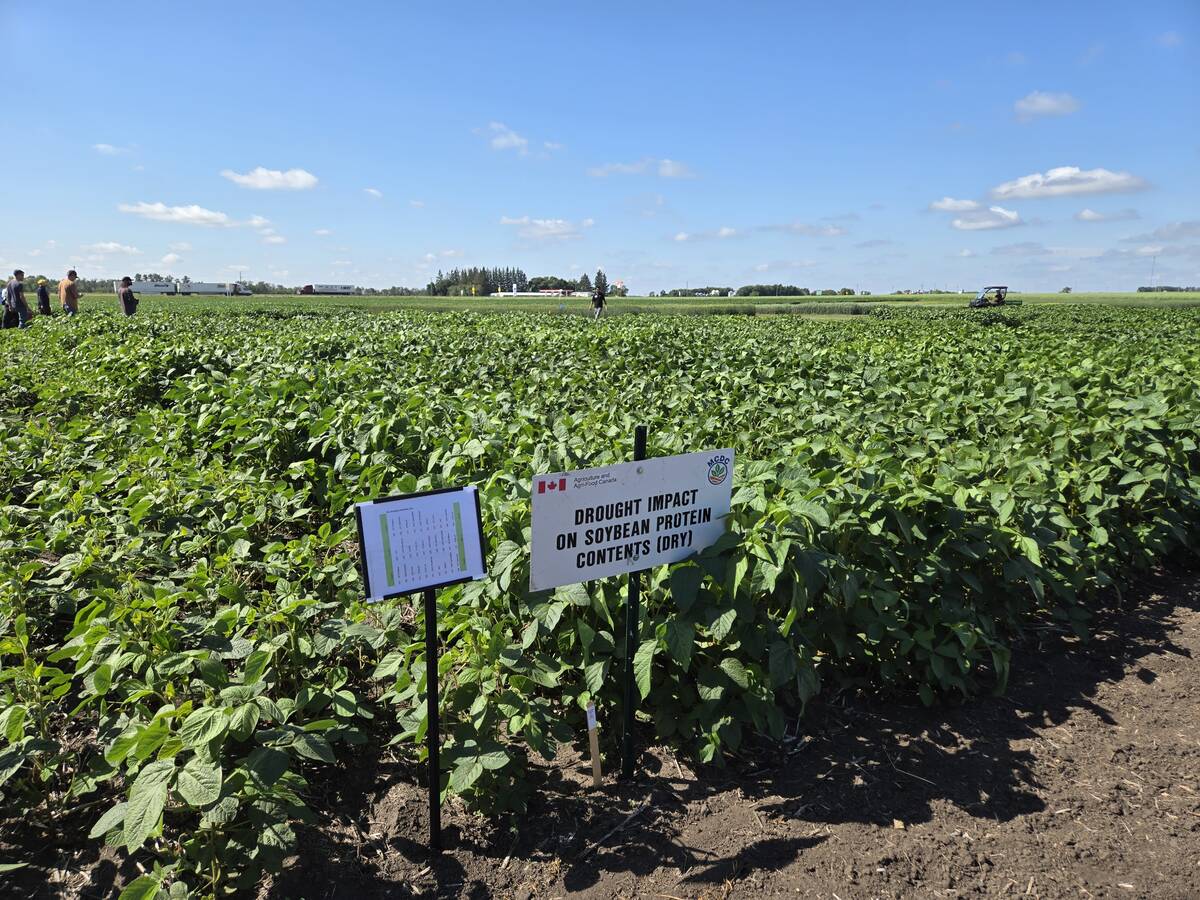MOOSE JAW – The political climate in the United States means it will be an enormous challenge to develop a farm bill that’s actually good for farmers, says North Dakota’s agriculture commissioner.
The current bill expires in September 2007.
Roger Johnson, a Democrat up for re-election this year, said the Republican administration doesn’t like the existing bill, which operates on the principle that there should be government support when prices and income collapse.
“They want to go back to what we had in ’96, which was a fixed payment no matter whether prices are high or low,” he said in an interview at the recent Farming for Profit conference. “They do that simply because they’re on this free-trade-at-all-costs campaign.”
Read Also

Carberry field day looks for agriculture solutions
Manitoba farmers explored research solutions for resilient crops, perpetual agronomic issues and new kinds of agricultural products at a field day at the Manitoba Crop Diversification Centre in Carberry on Aug. 6.
Johnson said the freedom-to-farm philosophy will be hard to fight this time.
The increasing agricultural opportunities in biofuel and renewable energy suggest that commodity prices will be higher. Therefore the cost of farm policy should be lower and it could be tougher prying dollars from the government.
But the demands on the U.S. farm policy are growing.
Right now, it doesn’t include price supports for livestock even though that sector accounts for about half of U.S. total farm income.
“Some people on the animal side are saying, ‘well, we want a piece of the action,’ ” Johnson said. “We’re also going to have demand from the fruit and vegetable growers (who) historically have not seen the dollars from the farm bill.”
Johnson said pulse crops will remain in the next bill but will likely be treated less generously.
He said the existing bill was passed when the American government had significant budget surpluses. Now, it has significant deficits.
“So there’s going to be less money available at the same time we’re going to have more people at the table.”
Agricultural spending is less than one percent of the U.S. federal budget but is still an easy target for cuts, said Flynn Adcock, assistant director at Texas A & M University’s Center for North American Studies.
He said farmers are worried about sharing the money with other producers who traditionally haven’t been part of the policy.
But he also raised the question of whether the war on terrorism, which is costing the U.S. treasury increasing amounts of money, will strengthen the argument for food security and provide the rationale for keeping the farm policy intact.
Adcock said much of what happens depends on pending U.S. elections and the world trade talks. If the Doha round is not completed by 2007, Congress may try to extend the farm bill for a year or two.
“The argument against that is the 2008 presidential elections,” said Adcock.
Johnson said he’d be in favour of extending the bill because it could be a bargaining tool at the World Trade Organization talks, but he doubts the federal government would like to do that.
“Their idea is we’re going to lead by example by just cutting all our subsidies, putting them on the table and try and get the rest of the world to do the same thing,” he said. “It never works that way.”
Johnson did not attend the recent talks in Geneva.
“The chance to influence anything is just a little bit less than zero,” he said.















